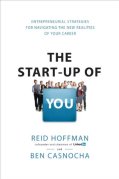By Roger Trapp
 It is now pretty well accepted that ? even if there is an economic recovery ? things will not return to normal. Although the signs in the United States especially have recently been encouraging, unemployment levels have not been falling at anything like the levels seen in the wake of previous downturns ? much to the disappointment of politicians, who rely on instilling hope in their constituents. Indeed, much has been written (see, for instance, our post on Jim Clifton?s ?The Coming Jobs War?) about how the new normal is going to be a worldwide shortage of jobs.
It is now pretty well accepted that ? even if there is an economic recovery ? things will not return to normal. Although the signs in the United States especially have recently been encouraging, unemployment levels have not been falling at anything like the levels seen in the wake of previous downturns ? much to the disappointment of politicians, who rely on instilling hope in their constituents. Indeed, much has been written (see, for instance, our post on Jim Clifton?s ?The Coming Jobs War?) about how the new normal is going to be a worldwide shortage of jobs.
Technology and globalisation are the culprits. Two trends that have really gathered pace in the past decade or so have created a world in which, on the one hand, many time-consuming, dull and often unpleasant jobs have been eliminated and on the other more and more people have access to the opportunities that people in western democracies have long taken for granted. The problem, of course, is that just as the technology has taken away many of the occupations to which even reasonably well educated people aspired so there is more and more competition for the positions that remain.
RUNNING OUT OF WORK
What to do? One answer is to do like the young man featured on a recent BBC Radio news programme who described how he sits at home in a dingy flat playing computer games, and watching television re-runs. Given the dire predictions of the commentators who appear on the news programmes that he must see a lot of, this is an understandable position. And it is no doubt adopted by many others in his position.
However, it is not the only solution. It has become commonplace in recent years for young people, in particular, to be told that they need to think less about obtaining a job and more about creating one for themselves, less about settling into a long-term career and more about being flexible and adaptable enough to have several careers over their lifetimes. The rhetoric is appealing enough (but then for many so was the old way of starting at the bottom of a well-known company and then working up to a substantial salary and all the benefits that brought in terms of lifestyle, prestige and the rest without having to do much more than be vaguely competent.) But it is not always easy to see how it will work in practice.

The heavily employed Reid Hoffman
Some light is shed by the hotly anticipated new book from LinkedIn founder Reid Hoffman and Ben Casnocha. ?The Start-Up Of You? (Random House) comes with the sloganising subtitle ?Adapt to the Future, Invest in Yourself and Transform Your Career?. But that should not put off would-be readers. Yes, it is tempting to say it?s all right for Hoffman, who ? thanks to the stock market listing of LinkedIn and his investments in various other technology businesses ? is financially more than comfortable. And the cynical might point out that, of course, the founder of LinkedIn is going to point up the benefits of networking. But perhaps it is the other way around. LinkedIn is a success because Hoffman realised the importance in the modern business world of connections. Consequently, he is probably worth listening to ? especially if you do not have a lot else to do with your time.
Hoffman and Casnocha (http://casnocha.com/blog) do not claim to have come up with this thinking. Indeed, a comprehensive further reading section makes generous mention of the likes of Daniel Pink?s 2002 book ?Free Agent Nation?, Tom Peters?s 1997 article ?The Brand Of You? and the book that followed it, ?The Brand You 50? as well as more recent works, such as Tim Harford?s ?Adapt: Why Success Always Starts With Failure? and Steven Johnson?s ?Where Good Ideas Come From?. But what they concentrate on ? without, as they say, providing ?tips and tricks on how to format your resume or how to prepare for a job interview? ? is the individual response to all the theory and statistics.

Muhammad Yunus
Taking as their starting point a remark by Muhammad Yunus, the Nobel Peace prize winner and pioneer of microfinance, that ?all human beings are entrepreneurs?, they say that everybody these days has to think of themselves as an entrepreneur when it comes to their career. This does not mean that ? as politicians and other policy makers and commentators often imply ? everybody should be setting up businesses. This only suits some people. Rather they encourage the reader to think of themselves as ?an entrepreneur at the helm of at least one living, growing start-up venture? ? their career. To help with this, Hoffman and Casnocha provide strategies for expanding the reach of networks, gaining a competitive edge and obtaining better opportunities. In short, everything a start-up business seeks to do.
Not that it is all about the individual. The authors are devotees of the idea that entrepreneurs and entrepreneurial thinking are the answer to many of society?s issues. ?Society flourishes when people think entrepreneurially. More world problems will be solved ? and solved faster ? if people practice the values laid out in the pages ahead,? they write.?At the heart of those values are the sorts of things we have come to associate with Silicon Valley and the technology companies like the ones with which Hoffman has been involved ? sharing information, joining groups and collaboration.
IT ALL STARTS WITH YOU
Put like this, Silicon Valley is not really a place or even a concept. It is an attitude of mind. And Hoffman and Casnocha draw a distinction between it and an earlier centre of American industrial success ? Detroit ? to demonstrate what will be crucial to success in the future.? Detroit failed, and became an abandoned city, because Ford, GM and Chrysler, the car companies that made it what it was, failed to adapt to a new world order. Ford had effectively invented mass production, while the head of GM created professional management. But they did not continue to evolve as the world around them changed.

Detroit found the end of the line
Detroit has become a shorthand for industrial failure and urban decay (see our post on the economics of cities). But it and the industries with which it is synonymous are not alone. Hoffman and Casnocha point to research by the accounting firm Deloitte showing that the ?topple rate?, the rate at which big companies lose their leadership positions, has doubled over the past 40 years. Today?s winners can very quickly become tomorrow?s losers. And Tomorrow?s winners are as likely as not somebody you have not yet heard of (see Ones To Watch).
The key, suggest Hoffman and Casnocha, is for individuals to see themselves as like technology companies permanently in a state of ?beta?. In other words, they should constantly be experimenting and testing, so that they can adapt and evolve. This is an optimistic approach, they say, because it ?celebrates the fact that you have the power to improve yourself and, as important, improve the world around you?.
They quote Andy Hargadon, head of the entrepreneurship centre at the University of California-Davis as saying that for many people 20 years of experience is really one year of experience repeated 20 times. For somebody who has their career in permanent beta 20 years of experience will really be 20 years of experience because each year will be marked by new challenges and opportunities. ?Permanent beta is essentially a lifelong commitment to continuous personal growth.?
indexB studies the long-trends that are shaping the future of business?and follows their reflections in the behaviour of thousands of companies that we track throughout the year.?We use this insight to help companies lead the debate about what?s shaping the future of their sectors.?To find out more please visit www.myindexb.com.
Advertisement
Like this:
Be the first to like this post.
Source: http://futureofbusinessblog.com/2012/02/16/reid-hoffmans-career-advice-for-a-jobless-world/
animal house big ten championship game big ten championship game ultimate fighter 14 ultimate fighter 14 2011 bowl projections ndamukong suh
কোন মন্তব্য নেই:
একটি মন্তব্য পোস্ট করুন